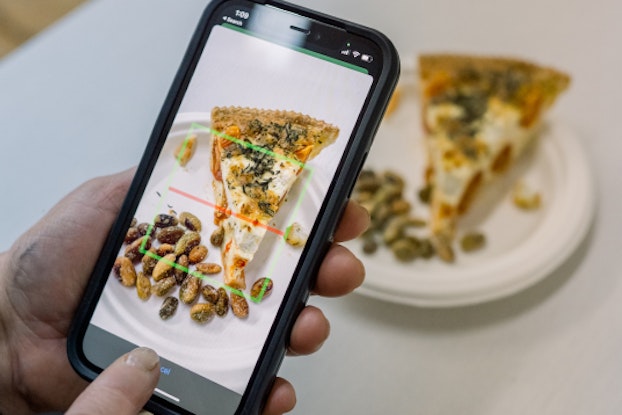
Why it matters:
- In the U.S., an estimated 20% of young people and 42% of adults have obesity, which can put them at risk of heart disease, Type 2 diabetes, and certain cancers, according to the Centers for Disease Control and Prevention.
- Yet historically, nutrition counseling has been unaffordable for a large swath of Americans.
- Co-founded by BIPOC female dietitians, virtual nutrition startup Culina Health doubled its revenue in a single year to become a multimillion-dollar brand, with a personalized, science-based — and insurance-accepting — business model that’s designed to make nutrition care accessible to all.
Registered dietitian Vanessa Rissetto was working at Mt. Sinai hospital in New York when she heard about a nutritionist and social media influencer charging $10,000 for a package of sessions. The amount was out of reach for most people. But at the same time, the news was a win for dietitians, Rissetto thought.

Interested in a small business membership?
Find out how the U.S. Chamber of Commerce can help your company grow and thrive in today's rapidly-evolving business environment. Connect with our team to learn how a small business membership can benefit your bottom line and help you achieve your goals.
“It was the first time that somebody was really putting it out there that what a dietitian does is something important,” said Rissetto, who’s been named by Essence magazine as one of the top five Black nutritionists that will change the way you think about food. But people should be able to afford nutrition services, she told herself. “I thought: How can I democratize this?”
Rissetto pledged to accept insurance for her patient visits—not all dietitians do—and dedicated herself to making nutrition care even more accessible. Fast forward five years, and she was running New York University’s Dietetic Internship Program while continuing to see patients of her own. One day, Rissetto had coffee with a former student, Tamar Samuels, who saw patients and took insurance, too.
The meeting led to the two teaming up to co-found Culina Health, a virtual nutrition service focused on delivering inclusive, culturally competent care to patients across the U.S. Their founding creed: Nutritional coaching and science-based health and wellness education is possible, and should be available for all. It’s a critical service as in the U.S., an estimated 20% of young people and 42% of adults have obesity, which can put them at risk of heart disease, Type 2 diabetes, and some cancers, according to the Centers for Disease Control and Prevention.
Since its founding in 2020, the company has grown from four to 70 dietitians, delivered more than 25,000 nutritionist sessions, and raised over $12 million in funding. From 2022 to 2023, it double its revenue to become a multimillion-dollar brand. Culina Health is part of the U.S. clinical nutrition market, valued at $14.05 billion in 2022 and projected to rise to $21.85 billion by 2028.
“At end of day, what we really want to do is give people access to prevention,” said Rissetto, Culina Health’s CEO. “And we understand what people have access to and what they can afford.”
Indeed, healthy eating doesn’t have to be expensive, she said. “You can get frozen vegetables at the dollar store.”
At end of day, what we really want to do is give people access to prevention. And we understand what people have access to and what they can afford.Vanessa Rissetto, Co-founder and CEO, Culina Health
Culina Health: Marketing by word of mouth amid a COVID-led telemedicine boom
For Rissetto and Samuels, the pandemic was a help, not a hinderance. It was the first time insurers reimbursed telemedicine visits at the same rate as in-person office visits, making starting a business venture based on virtual visits more realistic.
“Instead of seeing four people per day, you could see twelve since it was from your house,” Rissetto said.
In July 2020, Culina Health had two dietitians on staff and saw its first patients, providing personalized virtual nutrition counseling. Not long after, Rissetto started doing “organic marketing”—going on podcasts to talk about accessible nutrition and posting doable tips on her Instagram account.
“We weren’t on Instagram telling people to eat kale and chia seed cookies,” she said. “We were out there in the market talking about nutrition in a different way, saying dietitians are the frontline of healthcare, what we do matters, and we can help get better outcomes by partnering with physicians.”
Their message spread by word of mouth. Physicians reached out, connecting their patients and fellow colleagues with Culina Health. “We were on this upward trajectory, slow and steady,” said Rissetto.
In 2020, changes in telehealth reimbursement policies for medical nutrition therapy (MNT) allowed dietitians to bill insurance for virtual visits, and the company experienced a tremendous boost in demand. Other dietitians started to take note. So did investors.
The next year, Culina Health quadrupled its revenue from organic demand, without investing in paid marketing campaigns to scale, a route taken by many digital health companies hoping to achieve rapid growth, Rissetto said. Growth has always been steady and systematic, she said.
That same year, Rissetto first appeared as a guest sharing nutrition tips on the “Today” show, where she continues to appear regularly. The appearances bring awareness to the brand.
The company is the sole provider for CareFirst Blue Cross Blue Shield’s virtual primary care practice CloseKnit, and is in-network with all major insurance companies and Medicare.
[Read: 4 Trend-Driven Ways Brands Are Tapping Personalization for Growth]

A new model for nutrition care: helping physicians and patients with better data
Culina Health has evolved its business model from direct-to-consumer to also include physician partnerships. Today, 600 physicians and health care providers nationwide now refer their patients to Culina Health. “We see tremendous potential in B2B,” Rissetto said, and in the process providing a benefit to doctors, too.
Traditionally, physicians referring patients to dietitians often haven’t received good data on the patients’ progress, she said. Now, they benefit from Culina Health’s data collection and analytics on patient progress using a dashboard. Data that document many patients’ drop in weight, blood pressure, and cholesterol help dietitians learn how to better personalize nutrition plans to ensure success.
The company organizes its dieticians into specialist pods, focusing its care. For example, dietitians who are part of the company’s cardiac care pod specialize in heart health, interacting directly with patients who have heart issues and their referring cardiologists.
Next steps for the company include securing coverage for patients with Medicaid—data will hopefully help with that, said Rissetto—and developing a Culina Health app. Automation will remind patients of their goals and take over busy work from dietitians. “It will free up that mental space for the registered dietitian and open doors,” she said.
Ultimately, Rissetto dreams of a day when Culina Health is the go-to referral for all doctors and insurers for dietitian and nutrition help for their patients. “It’s about how do we keep moving in the space,” she said. “We’re at this inflection point.”
CO— aims to bring you inspiration from leading respected experts. However, before making any business decision, you should consult a professional who can advise you based on your individual situation.
CO—is committed to helping you start, run and grow your small business. Learn more about the benefits of small business membership in the U.S. Chamber of Commerce, here.







